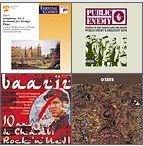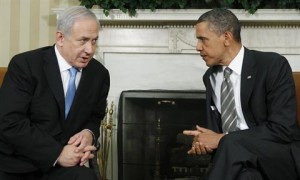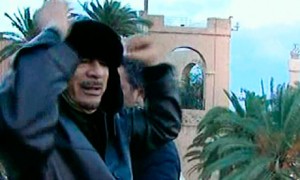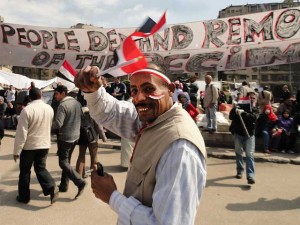
Rhapsody playlist: Democratic Revolutions in the Middle East
Here’s a little play list I put together inspired by the wave of democratic revolutions sweeping the Arab world. The play list includes songs celebrating people power and a small sampling of songs from the region. Today, on receiving
news from Libya, I added a few songs that go some way, insofar as anything can, to expressing the pure horror and sadness I felt on seeing images of death in the streets of Libya. The images have been shocking, the ruthlessness of the regime truly appalling. This music expresses the pure sadness and outrage I feel.
It is amazing and inspiring to watch these demonstrations! It has been horrifying and shocking to watch the response of the Libyan regime!
It is considered naive to suggest that foreign policy should be based on principle. We are told it is necessary to be
Machiavellian in safeguarding our national interest, and in the realm of foreign policy, realpolitik often trumps principle. I disagree. Perhaps I am, indeed, naive, but I believe that democracy, with protection for the rights of the minorities, is a principle that trumps almost all, and our policy ought to reflect that.
In the current wave of peaceful democratic revolutions sweeping the Arab world, US support of the citizen demonstrators has been slow and tepid. This in spite of the fact that sticking to our principles and unequivocally supporting the pro-democracy demonstrators is what is in our best economic and strategic interest. To do otherwise is a risky strategy, a strategy that, should it not go the way proponents believe, will have grave consequences.
Continue reading →
 The Scholars at Risk media review seeks to raise awareness about academic freedom issues in the news. Subscription information and archived media reviews are available here. The views and opinions expressed in these articles are not necessarily those of Scholars at Risk.
The Scholars at Risk media review seeks to raise awareness about academic freedom issues in the news. Subscription information and archived media reviews are available here. The views and opinions expressed in these articles are not necessarily those of Scholars at Risk.




